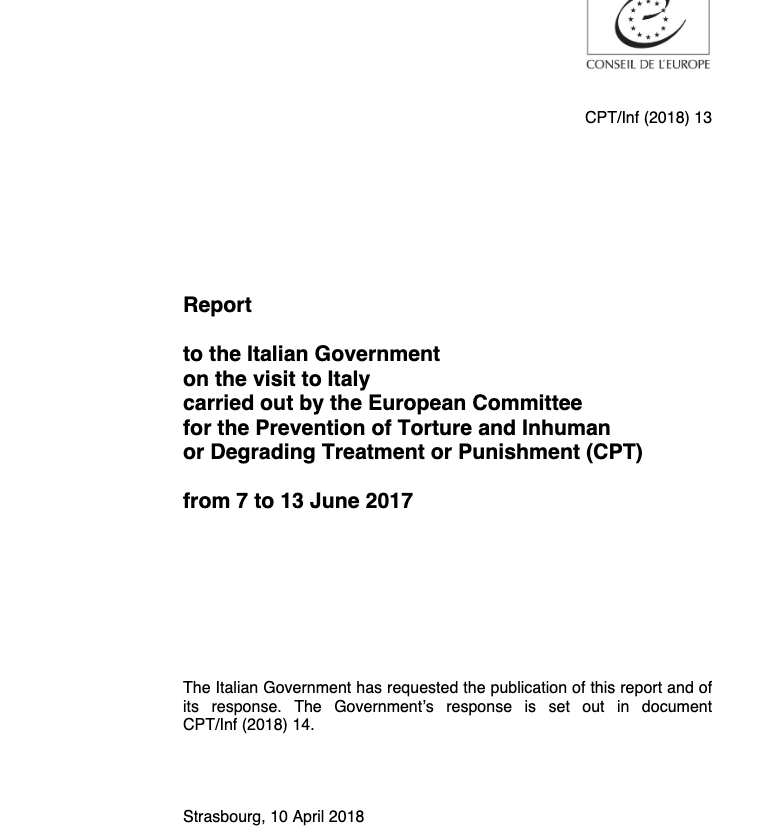Germany’s immigration detention system has undergone major changes since a 2014 ruling by the Court of Justice of the European Union condemning the country’s use of prisons for immigration purposes. Since then, the country’s detention infrastructure has shrunk from more than 20 to seven long-term facilities, even as new laws have broadened the grounds justifying […]
European Union
Immigration detention in Portugal
Portugal implements many strict immigration control measures despite facing comparatively minor migratory pressures. It detains asylum seekers lodging applications at ports of entry; the number of non-EU citizens ordered to leave the country has steadily increased; and it allows the detention of families with children in facilities that the country’s ombudsman considers deficient for this […]

Laws and Practice of Immigration Detention in the European Union: European Union Law vs. International Human Rights Law
Izabella Majcher presented a paper on the the EU detention regime and its compatibility with international human rights law at the Migration Law Section of the 2017 Society of Legal Scholars (SLS) Conference taking place in Dublin on 5-8 September. […]

Challenging Immigration Detention: Academics, Activists, and Policy-Makers
Governments increasingly rely upon detention to control the movement of undocumented migrants and asylum seekers. Approaching detention from an interdisciplinary perspective, this new edited volume brings together leading writers and thinkers to provide a greater understanding of why it is such an important social phenomenon and suggest ways to confront it locally and globally. […]

Submission to the Council of Europe’s European Committee on Legal Co-operation
In follow up to participation in the Council of Europe hearing on the draft legal instrument codifying the existing standards related to the conditions of administrative detention of migrants, held in Strasbourg 22-23 June 2017 the GDP submitted written comments to European Committee on Legal Co-operation on 12 July 2017. See details on the […]
“Hotspots” (from report of the European Committee for the Prevention of Torture 2017 visit to Italy)
1. Preliminary remarks; (Read full CPT report)11. As part of the response to assist frontline member States that are facing disproportionatemigratory pressures at the European Union’s external borders, European Union member states andinstitutions agreed in 2015 to implement the so-called “hotspot” approach to managing migration.5The “hotspot” approach aims at swiftly identifying, registering and properly processing […]

When the Exception becomes the rule: European Union Societies on the move
Izabella Majcher to give a presentation titled “Trends in Immigration Detention in the European Union,” which outlines the GDP’s ongoing research on immigration detention in EU countries, at the conference When the Exception becomes the rule: European Union Societies on the move, hosted by International Institute for the Sociology of Law, in Oñati, Spain, 4-5 […]

Centre for Foreigner in Slovenia(from report of the European Committee for the Prevention of Torture 2017 visit to Slovenia)
1. Preliminary remarks (Read full CPT report)77. The administrative detention56 of foreign nationals “who reside illegally” in Slovenia isgoverned by the Aliens Act57 while the detention of foreign nationals who have applied forinternational protection (asylum) is regulated in the International Protection Act.58Foreign nationals who are illegally present in Slovenia and those whose identity is unknownmay […]

UN Experts call EU recommendation on return procedures a “slippery slope”
New EU recommendation on return procedures a “slippery slope” to solve European migration challenges – UN experts Office of the UN High Commissioner for Human Rights GENEVA (9 March 2017) – EU countries must explore alternatives to increased detention and swift returns to uphold the human rights of migrants, UN experts* urge, as the EU […]
The Constitutionalisation of Immigration Detention: Between EU Law and the European Convention on Human Rights: GDP Working Paper #15
This paper argues that the increasing regulation of immigration detention in EU law has led to more constitutional protection for detainees, however some new regulations are resulting in more people being detained. […]




